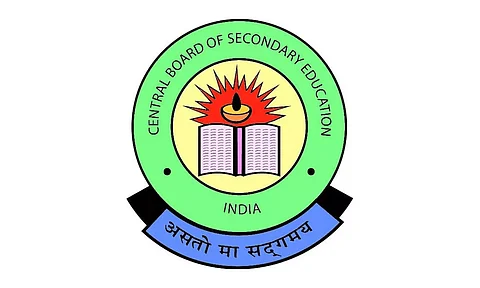
- Home
- Live Blog
- Breaking News
- Top Headlines
- Cities
- NE News
- Sentinel Media
- Sports
- Education
- Jobs

The Central Board of Secondary Education (CBSE) has done well by asking schools affiliated with it to install two special kinds of display boards, one highlighting the risks of excessive sugar intake and the other about the dangers of consuming high-fat foods and oils. While the first directive was issued in May this year, the second came a couple of days ago. The CBSE directive has asked the schools to ensure that these boards provide essential information, including the recommended daily sugar and oil intake, the sugar/oil content in commonly consumed foods, health risks associated with high sugar/oil consumption, and healthier dietary alternatives. This will educate students about informed food choices and promote long-term health benefits among students. As has been pointed out, the proliferation of sugary snacks, beverages, and processed foods containing high quantities of oil, which are either readily available in school environments or are commonly being provided in tiffin boxes by the parents, contributes significantly to this excessive intake. Important to note, there has been a significant increase in type 2 diabetes among children in India in the past decade, a condition once primarily seen in adults. This alarming trend is largely attributed to high sugar and oil intake, often due to the easy availability of sugary/oily snacks, beverages, and processed foods within school environments. The excessive consumption of sugar and oil not only increases the risk of diabetes but also contributes to obesity, dental problems, and other metabolic disorders, ultimately impacting children’s long-term health and academic performance. Studies have indicated that sugar constitutes 13% of daily calorie intake for children aged 4 to 10 years and 15% for those aged 11 to 18 years, substantially exceeding the recommended limit of 5%. And here begins the problem. The National Family Health Survey (NFHS-5) conducted in 2019-21, on the other hand, has revealed that the number of overweight and obese children is sharply increasing in India. Important to note, the CBSE has also asked the schools to install display boards and posters, etc., in common areas like canteens, cafeterias, lobbies, classrooms, etc., as well as on stationery like notebooks, letterheads, envelopes, and folders. Given these realities, while the CBSE must be congratulated for the initiative, this should also serve as a wake-up call for the state boards. Steps are also required to chase away vendors who sell all kinds of unhygienic eatables prepared in dirty places outside the school gate. It is also time to demolish all paan shops within 300 metres of educational institutions.